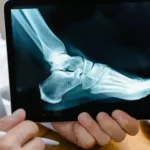In the aftermath of a car accident, the steps you take can significantly influence the outcome of your case. Whether it’s dealing with injuries, managing property damage, or navigating the complexities of legal claims, the process can be overwhelming. However, being informed and prepared can help you avoid common pitfalls that might jeopardize your case. Here are essential insights and strategies from Caruthers Law Firm in Houston on how to steer clear of mistakes in your car accident case.
1. Not Reporting the Accident Immediately
One of the first and most critical mistakes to avoid is failing to report the accident to the authorities immediately. Not only is it a legal requirement in many jurisdictions, but a police report also serves as an essential document that records the details of the incident. This report can be invaluable when filing insurance claims or pursuing legal action. Ensure you call the police right away, even for minor accidents, to have an official record.
2. Neglecting Medical Attention
Often, accident victims underestimate their injuries, especially when adrenaline masks the pain. Ignoring medical attention can not only harm your health but also weaken your legal claim. Immediate medical evaluation provides a documented link between the accident and your injuries, which is crucial for compensation claims. Always seek medical care, even if your injuries seem minor at first.
3. Admitting Fault at the Scene
In the chaos following an accident, it’s easy to inadvertently admit fault, even if you’re not to blame. Phrases like “I’m sorry” can be misconstrued as admissions of guilt. It’s important to remain calm and limit your communication with the other party. Let the law enforcement officers objectively assess the situation based on the facts and evidence.
4. Not Gathering Evidence
Collecting evidence at the scene can significantly strengthen your case. This includes taking photos of the vehicles, road conditions, traffic signs, and any visible injuries. Additionally, get the contact information of witnesses, as their statements can be pivotal. In the digital age, a well-documented accident scene is a powerful tool in legal and insurance negotiations.
5. Giving Recorded Statements to Insurance Companies Without Legal Advice
Insurance companies often request recorded statements shortly after an accident. While it may seem like a standard procedure, anything you say can be used against you to minimize your claim. Before providing any statements, consult with a legal professional who understands the nuances of insurance laws and can guide you on what to say.
6. Accepting Early Settlement Offers
Insurance adjusters are skilled at saving their companies money, often by offering quick settlements that may seem attractive in your vulnerable state. However, these initial offers rarely cover the full extent of your damages and future medical needs. It’s essential to have a lawyer evaluate any settlement offers to ensure they are fair and comprehensive.
7. Not Understanding Statute of Limitations
Every state has a statute of limitations for filing a car accident claim, and Texas is no exception. Missing this deadline can result in losing your right to sue forever. It’s crucial to be aware of these time limits and consult a lawyer early to ensure your case is filed promptly.
8. Underestimating the Value of Legal Representation
Many accident victims assume they can navigate the claim process alone or believe hiring a lawyer is too expensive. However, legal experts like those at Caruthers Law Firm have the knowledge and experience to navigate the complex legal system, negotiate with insurance companies, and maximize your compensation. Most personal injury lawyers work on a contingency basis, meaning they only get paid if you win, making legal assistance accessible to everyone.
9. Posting on Social Media
In today’s connected world, the urge to share experiences on social media is strong. However, posting about your accident or injuries online can be detrimental to your case. Insurance companies and defense lawyers may scrutinize your posts for evidence that contradicts your claims. It’s best to keep details of your accident and recovery offline.
10. Not Following Through With Medical Treatment
Failing to follow your doctor’s recommendations for treatment and rehabilitation can hurt your case. Insurance companies might argue that your injuries are not as severe as claimed or that you contributed to the prolongation of your recovery. Adhere to your treatment plan and keep records of all medical appointments and expenses.
11. Overlooking the Emotional and Psychological Impact
Car accidents can have significant emotional and psychological effects, including PTSD, anxiety, and depression. These impacts are just as valid as physical injuries and should be addressed in your claim. Consulting with mental health professionals can provide both the care you need and the documentation necessary to support your case.
How Can an Attorney Help Your Case?
Navigating the aftermath of a legal issue, whether it be a personal injury case, a business dispute, or a criminal matter, can be a daunting task. The complexities of legal procedures, coupled with the emotional stress of the situation, can make it challenging for individuals to manage their cases effectively. This is where the role of an attorney becomes indispensable. Lawyers provide a wide range of services that help clients not only understand their rights and obligations but also maximize their chances of achieving a favorable outcome. Below, we explore how attorneys assist clients throughout the different stages of a case, highlighting their invaluable contribution to the legal process.
Initial Consultation and Case Evaluation
The journey often begins with an initial consultation, during which the attorney listens to the client’s story, assesses the facts, and provides a preliminary evaluation of the case. This step is crucial for setting realistic expectations and deciding on the best course of action. Attorneys use their expertise to identify the legal issues at stake, evaluate the strengths and weaknesses of the case, and advise on the likelihood of success. This informed perspective helps clients make educated decisions about whether to proceed with legal action.
Investigation and Fact-finding
Once a client decides to pursue a case, the attorney engages in a thorough investigation to gather all relevant facts and evidence. This may involve interviewing witnesses, collecting documents, consulting experts, and conducting legal research. Attorneys have the resources and legal knowledge necessary to conduct comprehensive investigations that lay the groundwork for building a strong case.
Legal Strategy and Planning
With a solid understanding of the case facts, attorneys develop a tailored legal strategy aimed at achieving the client’s goals. This strategy considers the legal framework, precedents, the evidence gathered, and the client’s specific circumstances and preferences. The planning phase is critical for navigating the legal process efficiently and effectively, whether the case is resolved through negotiation, mediation, or trial.
Pleading and Pre-trial Procedures
Attorneys play a key role in drafting and filing pleadings, such as complaints or answers, and managing pre-trial procedures, including discovery and motion practice. These legal documents and processes require detailed knowledge of court rules and legal standards. By handling these tasks, attorneys ensure that the client’s case progresses through the court system properly and that the client’s legal rights are protected.
Negotiation and Settlement
Many cases are resolved through negotiation and settlement before reaching trial. Attorneys use their negotiation skills and legal knowledge to advocate for their clients’ interests during settlement discussions. They assess settlement offers, advise clients on their options, and work to negotiate terms that are favorable to their clients. The ability to effectively negotiate can save clients time, money, and the stress of going to trial.
Trial Advocacy
If a case goes to trial, attorneys represent their clients in court, presenting evidence, examining witnesses, and making legal arguments. The trial process requires a deep understanding of legal procedures, evidence rules, and courtroom tactics. Attorneys’ advocacy skills are critical in persuading judges or juries and achieving a favorable verdict for their clients.
Post-Trial and Appeals
Even after a trial concludes, there may be post-trial motions or appeals to higher courts. Attorneys assist with these processes, analyzing the trial record, identifying grounds for appeal, and crafting persuasive appellate briefs. Whether challenging an unfavorable decision or defending a favorable one, attorneys navigate the complexities of the appellate system to protect their clients’ interests.
Ongoing Support and Counsel
Throughout the legal process, attorneys provide ongoing support and counsel to their clients. They keep clients informed about the progress of their case, address concerns, and adjust strategies as needed. This continuous communication and guidance are vital for maintaining clients’ confidence and ensuring that they are prepared for each stage of the case.
Experienced Houston Car Accident Attorneys
Attorneys play a vital role in guiding clients through the legal process, from the initial consultation to the resolution of the case. Through their expertise in legal analysis, strategy development, and courtroom advocacy, attorneys help clients navigate the complexities of the legal system, protect their rights, and pursue their legal objectives. Whether advocating in court or negotiating behind the scenes, attorneys provide the professional support and guidance that clients need to face legal challenges with confidence.
Caruthers Law Firm
Address: 4141 Southwest Fwy,
Suite 400
Houston, TX 77027
(713) 526-9557
View our Google Listing






